Posted on 12/21/2021
.jpeg)
When people get a scratch, ding, or dent on their cars, they tend to put off fixing it as much as possible. However, it can bite you back in the long run. Here's why curing those small imperfections on your vehicle are such a big deal. Make the Mark Vulnerable Leaving scratches and dents unattended makes your vehicle susceptible to further damage like cracking, chipping, and paint-peeling. Not only will this make your car look worse, but the damage can spread from its original point. In the end, you'd have to pay more than you originally had to. Rust Formation Paint chipping occurs when a scratch or dent on your vehicle goes unfixed. Certain conditions can be ideal for rust to form and thrive. Rust can spread very quickly and eat away your car's metal. Eventually, it can even hurt your vehicle's performance. The scary thing is that it could all start with the tiniest of dents on your vehicle's body. Decrease Your Resale Value When it comes time to trade or sel ... read more
Posted on 11/19/2021
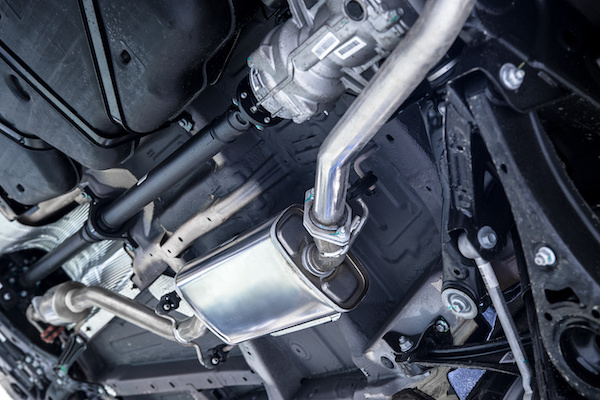
Most people don't talk about the exhaust system enough, but bad things can happen if it malfunctions. In other words, if you have issues with your catalytic converter, muffler, exhaust pipes, or other exhaust system components, your vehicle will release harmful emissions. What Does the Exhaust System Do? First and foremost, it's essential to understand what the exhaust system does in your vehicle before discussing the problems that can occur with it. The exhaust system is responsible for diverting toxic exhaust fumes away from your engine and eventually out the tailpipe. If the exhaust system isn't working correctly, these fumes can escape the cabin. That is the most significant concern as carbon monoxide is very poisonous. Your exhaust is also in charge of managing your emissions and plays a role in your fuel efficiency. Signs You Might Have an Exhaust Problem There are several common warning signs that you may notice when your exhaust system malfuncti ... read more
Posted on 10/25/2021

Watch our video on check engine lights here!https://youtu.be/XnJxCEDNmfI What's The Check Engine Light? You’ve already taken your car into an auto repair shop to find out why it’s not running as fast as it used to. But what actually is the check engine light and what can you do about it? When the check engine light comes on, it means that there is a malfunction with the drive-train system. And it could be simple as a loose or bad gas cap, or a malfunction with. Some of the reasons that cause a check engine light to come on can possibly be a faulty emission component like catalytic converter, a fuel delivery problem, a malfunction sensor or ignition system problem like having a bad ignition coil or bad spark plugs. Flashing or blinking check engine light, can cause severe damage to the catalytic converter. It is highly recommended to stop the engine and tow ... read more
Posted on 10/14/2021
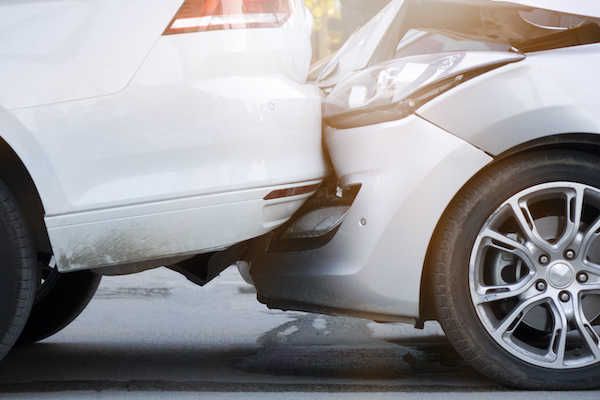
Car accidents can be a scary and stressful situation to be in, whether you're a new driver or an experienced one. Most of you are going to be involved in a vehicle collision at least once in your lifetime. In fact, the average American driver will be associated with four car accidents in his/her lifetime. So it's imperative that you know what to do and NOT DO at the scene. Here are the five big no-nos following a vehicle collision: Flee the Scene - You may be scared, but you should never run away from your problems. It is considered a criminal offense. You are obligated by law to remain at the scene, regardless of how minor the hit was, so don't take off. Block Traffic - If the accident is minor and if the conditions allow it, please move all involved vehicles to the side road. Otherwise, you'll annoy a lot of the other people on the road. It's also going to be safer for you and the other party to get out of the car to exchange information. Not Call the Police ... read more
Posted on 10/8/2021

Watch our video on brakes here! https://youtu.be/mth6m_2OH1Q We get this concern a lot. Why are my brakes squeaking? In a simple way the brake system works when we push on a brake pedal, we activate the hydraulic system pushing the fluid from the brake master cylinder, through the brake lines, abs system, brake hoses to the brake caliper, brake caliper bushes the brake pad or the brake shoes against the brake rotor or the brake drum to stop the vehicle. Several things could cause the brake to squeak, the common cause is losing the friction material on the brake pads or the brake shoes, at that point will get metal to metal surface causing the brake squeaking noise, another cause will be warped brake rotors in this situation the brake pad does not touch the whole surface of the brake rotor causing the squeaking noise, a foreign material between the brake pad and rotor or between the brake shoes and drum will cause brake squeaking too. It ... read more
Posted on 9/16/2021
.jpeg)
Brake pads are an essential part of your vehicle's brake system. In order to achieve a healthy and seamless stop, you need to have brake pads in good working condition. On average, you should exchange your brake pads every 40,000 to 50,000 miles. The good news is, you'll likely encounter minor symptoms when your brake pads are nearing their end of life. Below are five common signs it's time to replace your brake pads. Sign #1: Squeaking or Squealing Sounds The first symptom that it's time to restore your brake pads is if you catch persistent unusual noises coming from your brakes. Sometimes you can expect squeaking brakes in wet road conditions. However, if you have noisy brakes on a clear day, your brake pads are due for service. Come by Elite Auto Experts for a proper diagnosis and replacement. Sign #2: Grinding Metal Noise If you overhear a deep, grinding metal sound coming from your brakes, that's another indication that you need brake repairs. C ... read more
Posted on 8/12/2021
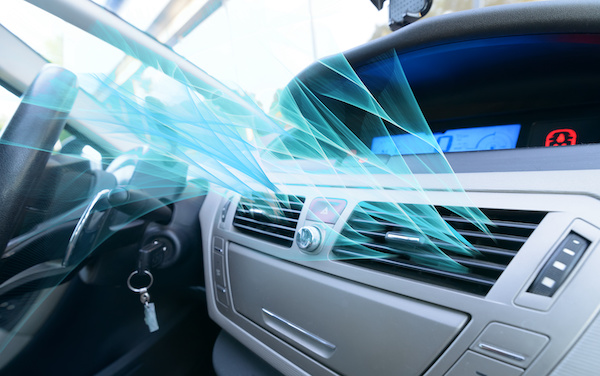
Unless you've spilled a water bottle or dragged in wet shoes from rain or snow, a wet floor in your vehicle may be a sign of an A/C leak. Air conditioning leaks can happen for numerous reasons, and it's critical to address them right away to avoid serious (and expensive) restorations. Clogged Evaporator Drain Condensation and water can flow out of your car through an evaporator drain. Don't worry - we want this to happen! With usage over time, this drain can get blocked by dirt or debris. Similar to water in a stopped-up sink, the condensation from your A/C can get backed up. Once the evaporator core floods, the moisture will go right through to the A/C vents. Voila - you will get puddles. It would be best if you had a professional unclog this drain ASAP because it can damage electrical A/C components like the resistor. Faulty Seals If the plastic or rubber seals in your air conditioning system break, water can easily seep out of your vents. If thi ... read more
Posted on 7/12/2021
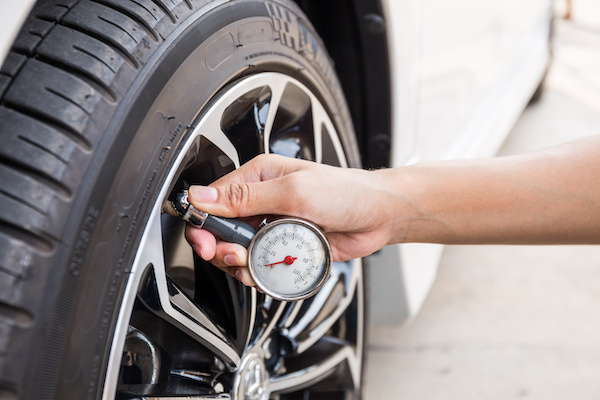
Though it is recommended to check your tires once a month, you should check your tires as much as you can. Having the incorrect tire pressure can lead to uneven tread wear, which can ultimately lower your gas mileage and affect your vehicle's handling. Don't worry, though, because we've got you covered. Here's our guide to perfecting your tire checking routine. How to Find the Pressure Requirements for Your Car Before you pull out any tools, you need to know how much air your wheels need. Tire pressure is measured in units of psi or pounds per square inch. On the driver's door side, you should find a sticker that indicates the recommended tire pressure. If you have trouble locating the sticker, then you can also refer to the owner's manual. How to Check Tire Pressure The perfect time to check your tires pressure is when the car has been idle for at least a couple of hours and the tires are cold. You will most likely need a tire pressur ... read more
Posted on 6/22/2021
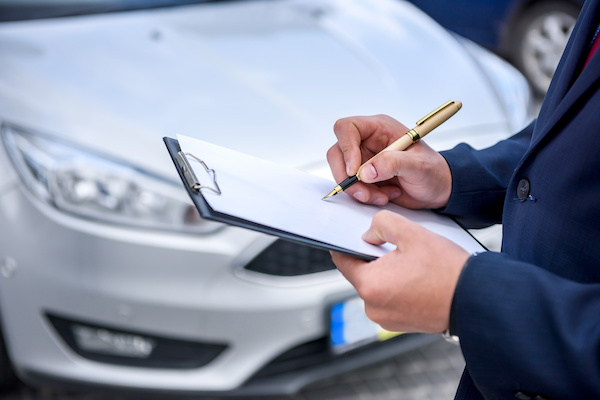
The term 30/60/90K maintenance plan is synonymous with your factory scheduled maintenance plan. You might wonder why the three numbers are so significant, and it is because the majority of car manufacturers recommend these services every 30,000 miles. Don't Miss Your 30/60/90K Maintenance. The truth is this servicing is very important for your vehicle to undergo. At each of these milestones, specific procedures need to be done to upkeep your car. Ignoring the service can lead to severe problems and a shorter lifespan for your vehicle. There are two reasons to follow this plan: 1 - Sticking to the maintenance schedule will ultimately prolong the life of your car. You can often avoid much more extensive repairs in the end. 2 - Additionally, sticking to the plan is usually a requirement to maintain your warranty. For instance, if you want the dealership to honor your car's warranty, you must follow the scheduled maintenance plan.&nb ... read more
Posted on 5/18/2021
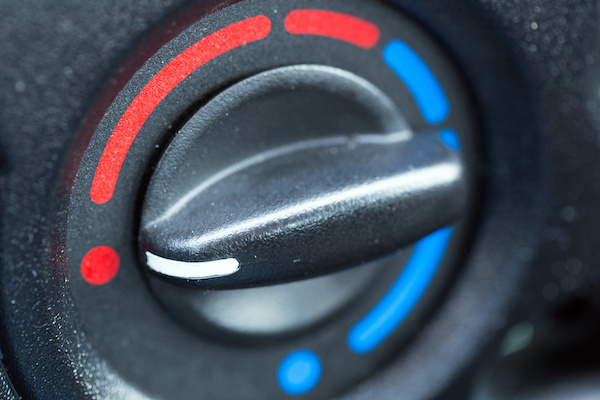
When it comes to car trouble, few things cause panic like an overheating engine. Especially if you're unfamiliar with vehicles, this experience can be downright frightening. But don't let the heat get to you. If you keep a cool head, it could mean the difference between a quick engine fix, or something that ends up costing thousands. Why Does an Engine Overheat? Vehicles have an optimal temperature range, which is visible on the dashboard. If the temperature gauge creeps into the red zone beyond this range, the engine is overheating. Steam rising from the hood will often be another indicator. Overheating can be caused by several factors, including: Driving in hot weather Low water/coolant Failing water pump Cooling system leak or clog Thermostat malfunction Faulty radiator fan The Heat Is On, but Don't Panic What should you do if your engine overheats? First, remain calm. Then, as soon as possible, pull over and shut off your vehicle. But what if there's nowhe ... read more